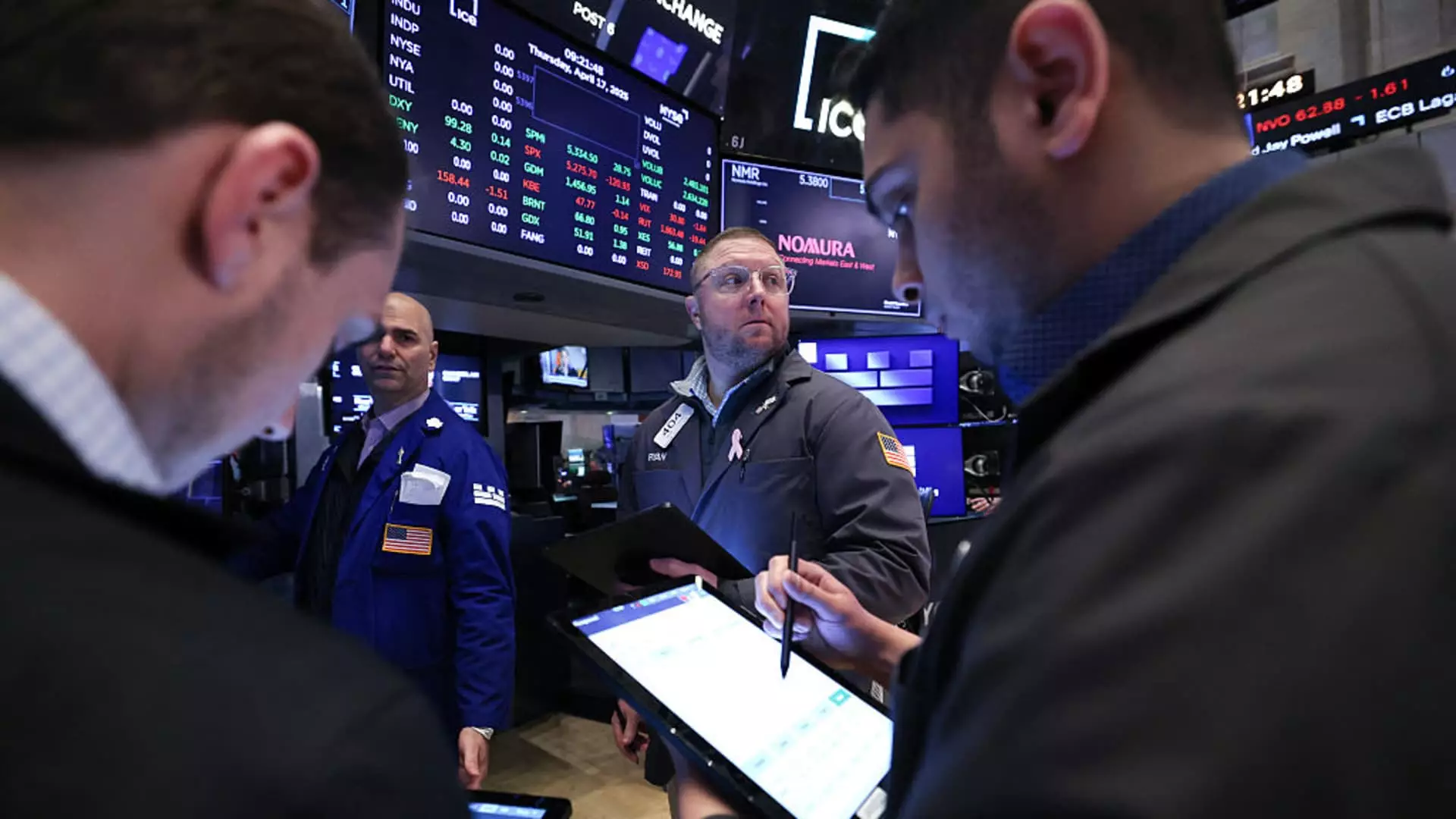The American economy appears to be teetering on the brink of an impending recession, largely due to the ongoing tariff policies that have been implemented. Torsten Slok, chief economist at Apollo Global Management, has boldly declared that if the current tariffs persist, a recession is not just likely—it’s practically guaranteed. Slok’s stark assertion that there is a 90% chance of a two-quarter contraction in economic output by 2025 should raise alarm bells across both business and governmental sectors. The data he references underscores a frightening reality: a potential drop of 4 percentage points in GDP could have devastating effects on both small businesses and the broader labor market.
The overarching issue is the imbalance created by high tariffs, particularly those imposed on imports from China. This policy, ostensibly aimed at protecting American manufacturers, inadvertently places substantial strain on small business owners who lack the cash reserves to absorb such hikes. The palpable fear that these tariffs will cause rampant bankruptcies among retailers underscores a fundamental flaw in the economic strategy being employed by the administration. One cannot help but view this as a tremendous oversight, as it threatens to unravel the fragile fabric of our economy.
The Reality of Small Business Struggles
It is critical to recognize the disproportionate impact that tariffs have on small businesses. According to Slok, these entities, which constitute 80% of the total employment landscape, find themselves increasingly vulnerable to the pressures of rising costs due to tariffs. Unlike larger corporations, small businesses often operate on thin margins and lack the financial elasticity needed to weather such storms. Slok’s warnings about potential bankruptcies are not merely alarmist; they reflect a reality that could affect millions of employees.
With smaller businesses arguably being the backbone of the American workforce, the implications of widespread failures would not just be economic but existential. These establishments do more than provide jobs; they foster community and innovation. The fallout from tariff-induced bankruptcies would thus extend far beyond economics; it could devastate local economies, lead to increased unemployment, and breed a climate of despair among communities that rely on these businesses for both goods and services.
Job Market Implications and Consumer Sentiment
As the possibility of recession looms, the job market stands as a bellwether for the overall health of the economy. Slok points towards weekly jobless claims as an indicator of underlying weakness—a lagging metric that could quickly shift from favorable to alarming. Should job losses start to manifest in these reports, it would signal to consumers that economic stability is imperiled, thereby dampening consumer sentiment even further.
A decline in consumer confidence invariably results in decreased spending, which creates a vicious cycle that exacerbates any economic downturn. It’s crucial to recognize that our economy thrives on consumer activity; a slump in retail, catalyzed by high tariffs, will send ripples throughout various sectors, culminating in a broader economic crisis.
The Broader Economic Landscape
The specter of recession draws attention to the broader economic climate, resonating with concerns being expressed in financial circles worldwide. Attention has turned to various economic forecasts, with institutions like JPMorgan hinting at a significant risk if tariffs remain unchanged. Yet, perhaps more concerning than the forecasts themselves is the evident uncertainty that surrounds current policy decisions. Such unpredictability serves to undermine investor confidence, as market participants grapple with the unknowns embedded in ongoing tariff negotiations.
Trust in economic policy must be established for a healthy market to flourish. This environment of instability can force businesses to hesitate in their investments and growth plans, exacerbating an already precarious economic situation. It is incumbent upon policymakers to reassess these tariffs and their broader implications on the economy. If they persist, the ramifications could be felt far and wide, reverberating through local communities and national markets alike.
The economic stakes are incredibly high, and the need for strategic foresight is paramount. A departure from the current tariff policy could pave the way for recovery and growth, but failing to do so may plunge the nation into an economic abyss that could take years to recover from.

